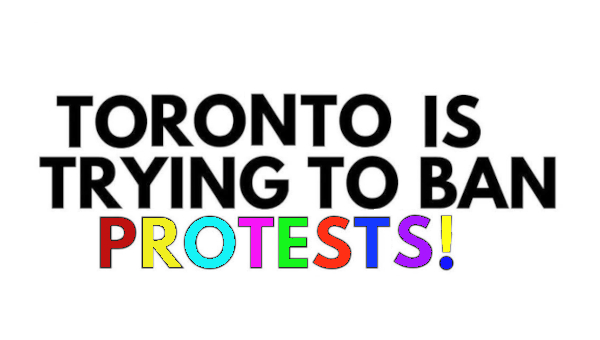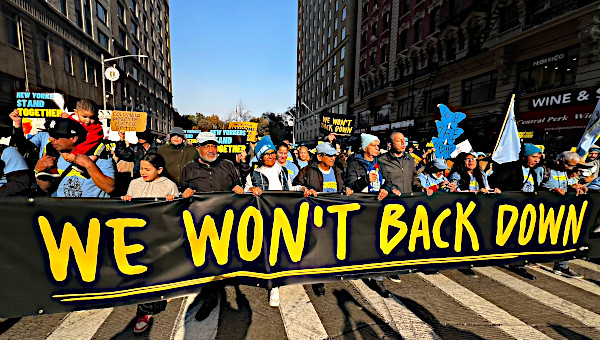I would first off like to say that until very recently I have never been in a student union that was part of the Canadian Federation of Students (CFS). I had spent my undergraduate years at Dalhousie University where I was represented by the Dalhousie Student Union (DSU), a part of the Canadian Alliance of Student Associations (CASA).

When I was a student at the height of the anti-globalization and antiwar movements on campus, our student union was highly regressive. The DSU and CASA were populated by young Liberals and Tories who consistently worked to undermine our PIRG (Public Interest Research Group) and squash any progressive movements. One year the President of the DSU even went so far as to personally tear down posters on campus advocating for tuition reduction. While I was part of many progressive campus organizations we for the most part were outmaneuvered by the rightwing (I am happy to say that DSU has managed to elect a progressive slate two years ago, which has shifted the political culture on campus to the left). I know what it is like to be a student at a university with a truly reactionary student union. It means being constantly on the defensive, fighting over what seem like basic concepts (the idea that we should pay less for tuition, that we should oppose war etc.) and it means feeling isolated and disempowered.
So I was surprised to read that a press release announcing a disaffiliation campaign from the CFS being launched on 16 campuses (which ones I am not sure). The purported reason for the campaign is that the CFS is a top down bureaucracy that doesn’t represent the interests of students. I mean I have issues with CFS – my grad union at McMaster was taken over by rightwing students (one of the many reasons not to overly fetishize local autonomy) – but this campaign seems foolhardy for several political reasons.
A United Front?
One of those quoted in the press release for the disaffiliation drive stated, “…every student – from every part of the political spectrum – has a reason to want to leave the Canadian Federation of Students.” The press release then went on to layout the reasons for wanting to leave the CFS: questionable financial decisions, a bloated bureaucracy, undemocratic decision-making and ineffective actions.
What was clear to anyone reading this is that the disaffiliation campaign purposes to craft a united front of sorts of the far-left and the right (anybody and everybody who wants to leave the CFS). This is a dangerous strategy that can only benefit reactionary forces on campus. The idea that somehow the far-left can work with forces that are in complete opposition to student power in order to empower students is absolute folly. A campaign such as this is based on a fundamental misreading of the broader political climate on most campuses in English Canada. The CFS has problems, but to work with campus conservatives and liberals to do away with the CFS and institute an ASSE-like structure out of thin air with reactionary allies is beyond ridiculous. This will split the left and benefit the right. I cannot think of an historical example where the far-left advanced struggle by working with the right. It is an elementary political calculation. Those refusing to accept this are more concerned about their own political identities as radicals than they are about the balance of political force that enables radical struggle to occur.
Going it Alone
I am not on principle opposed to splits in unions or political groupings. The question is does a split in the CFS strengthen student power or weaken it? It is hard for me to see how a campaign such as this will actually benefit students or student struggle in Canada. Most likely it will shift the political terrain to the right, not the left. I liken this notion of conjuring up a new more radical national student union to the atrocious Stalinist third period policy where communist parties formed independent red unions outside of the existing union movement. This analysis saw social democrats as an equal or greater enemy to the working-class as the far right. The results of this Stalinist strategy were a split in the leftwing, the marginalization of radical voices from the rest of labour and the growth of the far right.
The point is that to break away from the mainstream student movement is absolute adventurism. If you can’t win leftwing slates at the local level of the CFS, what makes you think the temperature on student campuses is so radical that there can be a successful break with the CFS to the left?
The Politics of Betrayal
So the CFS is bureaucratic. Perhaps it is overly so (although I am not totally buying this argument. It doesn’t seem like the CFS has an excessive amount of staff compared to the number of members they represent. Please correct me if I am wrong). There are lots of improvements that one could make to the CFS, I am not arguing otherwise (to be honest when Ethan Cox rails against the bloated bureaucracy of the CFS even though he backed and worked for Brian Topp – the very definition of a party apparatchik – I become a little skeptical of this bureaucratic critique).
I do oppose, however, the idea that there needs to be a wholesale new organization to make those changes. If your answer is that the CFS bureaucrats are suppressing changes and opposing militancy, I am sorry but that is a lazy analysis. Yes, that happens, but that is not why the CFS is less militant than it should be. The left frankly needs to be better organized and strategize across different campuses to push things further. Change will not come from above. We are not betrayed by some reformists in staff positions – they are doing what we all should expect them to do.
So this brings us to the nature of the CFS itself. Is the CFS radical? No, of course not, it is made up of unions whose membership is picked by the administration. It is as radical as the membership can make it. After the dissolution of the Canadian Union of Students in 1969, it was twelve long years before a new national student union was formed – something that those arguing for defederation should better understand. The CFS has undergone many iterations along the political spectrum as its membership and the conditions of struggle have changed. The struggle within unions and amongst students should not be engaged with on terms of whether they are radical enough for some, but whether they advance the interests and struggle for the majority of their membership.
Where Does Change Come From?
Change does not come from above. Change doesn’t just come from having the correct democratic structures. Participatory democracy in and of itself will not shift political struggle or raise consciousness. The student union at McMaster last year had one of its largest ever general assemblies and they voted for an administration fee increase! Political struggle is more nuanced and vibrant than simply fetishizing structural reform. Having a mechanical approach to political organizing is a dangerous way of thinking that harkens back to the worst the left has to offer.
If lefties are serious about advancing student struggle in English Canada they should form caucuses, organize across campuses and win local positions in their unions. If you can’t beat your perceived enemies in the CFS how can you ever hope to out organize the right wing or the state? We need to adopt a simple axiom in the student movement: we are for our leaders when they take positions that advance the interests of students. We are against them when they do not. That doesn’t mean we break up our organizations when our position is in the minority, it means we assess where the membership is and we organize to change those positions.
We must remember that we operate in the world as it is, not in how we would like it to be. The left’s task in any membership organization is to organize where the membership is at. We do otherwise at our own peril.
Update – here’s an interesting read about how lefties should orient toward the CFS: “Thoughts on Socialist Strategy for the Student Movement.” •
Dave Bush is an activist and writer. He is a former union organizer and is currently a co-editor of rankandfile.ca. You can find his writings at hammerhearts.wordpress.com, where this article first appeared.





